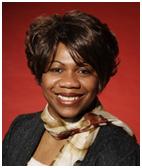Do you have plans for the summer? Many of you have been structured all year long and are looking forward to your summer vacation and to some rest and relaxation. You may have plans to read a good book, enjoy the sunshine, go to the beach, maybe even do some much needed gardening and of course the most important thing is to spend quality time with friends and family. Can you imagine going through the summer and not getting to do most of the activities on your list?
Summer plans also needs some structure
Like most people you may be thinking that summer is also a time to do away with all structures such as day-timer, calendars and lists. As a coach, I have seen many clients in the fall who are upset with themselves because they didn’t get to do some of the things they wanted to do. I think it is important to have a bit of rest and relaxation and I too am looking forward to reading for relaxation, but I have come to learn that it is very important to maintain some structure so that I can enjoy my summer and look back fondly at the things I did without guilt over having missed on some very important things.
Reflections
Sometimes we plan to do too much, which can be overwhelming, as a result we end up not getting anything done. Are you in danger of putting too much on your summer calendar? If you have a lot that you want to get accomplished it is important that you be realistic about what you want to get done and your time availability. Yes, summer is also a time to set realistic goals.
Action steps
Here is how I help my clients go about maintaining structure and fun over the summer months.
- Make a list of all the things you want to do this summer
- Arrange your list in order of priority
- Identify the amount of time needed to get your top 5 things done
- Plan the other two important activities in the time left over
I would love to hear what you have planned for the summer and that you are giving yourself an opportunity to work, live and play well even during the long hot summer days.

Be Well
Joyce Odidison is the Director of training at Inter personal Wellness System Coaching Institute. She is a Conflict Analyst, Facilitator and Coach, an Alternative Dispute Resolution Practitioner, Mediator and author of the books “Getting Ready for Mediation, 2004 and “Interpersonal Wellness System, 2010. Joyce is also the world’s leading Interpersonal Wellness expert and the creator of the innovative Interpersonal Wellness System model® and the IWQ Life Planning Profile Assessment®. She is also a great keynote speaker,  coach and mentor who work with leaders in organizations and their employees to implement an 8 step strategy for workplace wellness, conflict management and respectful workplace interactions. Joyce help her clients and audiences to work well, live well and play well by providing easy to implement strategies and tips to optimize their interpersonal wellness and success.
coach and mentor who work with leaders in organizations and their employees to implement an 8 step strategy for workplace wellness, conflict management and respectful workplace interactions. Joyce help her clients and audiences to work well, live well and play well by providing easy to implement strategies and tips to optimize their interpersonal wellness and success.
